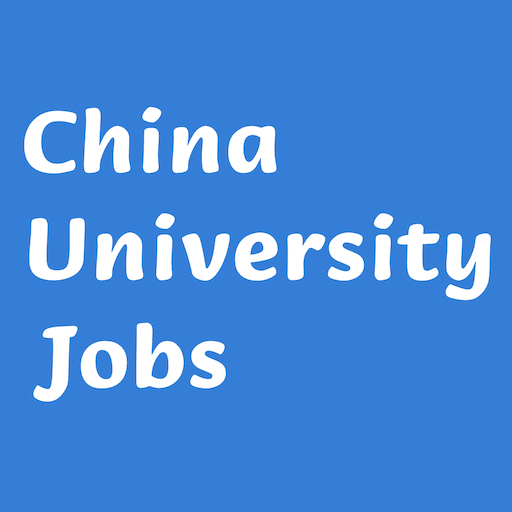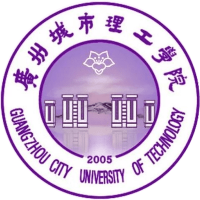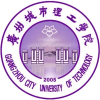About Guangzhou City University of Technology
Guangzhou City University of Technology (formerly Guangzhou College of South China University of Technology) is a multidisciplinary applied university approved by the Ministry of Education, with a focus on engineering and the coordinated development of economics, management, literature, science and art. In 2006, it was founded by Guangzhou Yunfeng Enterprise and South China University of Technology, and in 2021, it was approved by the Ministry of Education to be transformed into Guangzhou City Polytechnic University, which is an independent undergraduate private higher education school. The university is the first IACBE accredited university in China and is a model school for innovation and entrepreneurship education for college students in Guangdong Province, a pilot school for intellectual property rights in Guangzhou, and the first IACBE accredited university in China.
Operating Conditions
The university is located in the Huadu District of Guangzhou City in the Guangdong-Hong Kong-Macao Bay Area, with convenient transportation and superior location. The campus is surrounded by mountains and water, with green trees and hundreds of flowers, making it an elegant place for studying and learning. The university covers an area of 1,753 mu and has 14 experimental centers, including 5 basic experimental centers and 9 professional experimental centers, 268 laboratories, and 543 employment and internship bases. There are 1 national-level off-campus practice base for college students, 2 national-level crowdsourcing spaces, 7 provincial-level experimental teaching demonstration centers, 7 provincial-level off-campus practice bases for students, 1 provincial-level collaborative education platform, 2 provincial-level first-class majors, 11 provincial-level quality engineering specialty specialties, 3 provincial-level quality engineering application-oriented talent training demonstration majors, and 3 provincial-level quality engineering professional comprehensive reform pilot projects.
Faculty
The university insists on the strategy of “strengthening the university with talents”, and improves the level of teachers through the measures of “bringing the new with the old”, “Double Hundred Project” and the formation of discipline teams, etc. A team of high-quality teachers has been formed with the university’s own teachers and teachers selected by Huagong mainly, supplemented by part-time teachers.
Among them, there are 1 national excellent teacher, 1 national excellent educator, 3 people enjoying the special allowance of the State Council, 3 famous teachers in Guangdong Province, 1 advanced individual of teacher morality in Guangdong Province, 4 excellent teachers in private colleges and universities in Guangdong Province, and 3 excellent teachers in South Guangdong Province. 2018, Professor Zhao Honghong won the highest honor award for architectural educators in China – – China Architecture Design Award – Architectural Education Award. -China Architecture Design Award-Architectural Education Award.
The projects of “The Cultivation Model of Applied Innovative Talents Based on Science and Technology Competition – Exploration and Practice of Talent Cultivation in Independent Colleges” and “Research and Practice of Cultivating Applied Talents in Electric Power Industry with Emphasis on Characteristics, Strong Practice and Outstanding Skills” hosted by our teachers won the Second Prize of Provincial Teaching Achievement successively. 2020, the project of “Cultivation of Applied Talents in Electric Power Industry with the Concept of Professional Accreditation led by Prof. Zeng Zhixin of our university In 2020, the project “Exploration and Practice of Professional Connotation Construction Model of Private Universities Led by Professional Certification Concept” won the first prize of Provincial Teaching Achievement Award.
Subjects and specialties
Aiming at the development of regional industries and the construction of new engineering, the university actively promotes the docking of discipline chain, professional chain and industry chain, and constantly adjusts and optimizes the layout of disciplines and majors.
There are 16 secondary schools, including School of Automotive and Traffic Engineering, School of Mechanical Engineering, School of Electronic and Information Engineering, School of Communication Engineering, School of Electrical Engineering, School of Computer Engineering, School of Management, School of Economics, School of Foreign Languages, School of Jewelry, School of Architecture, School of Civil Engineering, International Business School, School of Robotics Engineering, School of Big Data, School of Marxism, etc., which set up the following schools: Vehicle Engineering, Robotics Engineering, Electronic and Information Engineering, Communication Engineering, and Marxism. There are 43 majors including Vehicle Engineering, Robotics Engineering, Electronic Information Engineering, Communication Engineering, New Energy Science and Engineering, Computer Science and Technology, Accounting, Financial Engineering, English, Gemstone and Material Technology, Architecture, Civil Engineering, Investment, Intelligent Construction, Visual Communication, etc., covering 16 primary disciplines and 24 secondary disciplines. The university has 2 provincial key construction disciplines, 2 provincial first-class majors, 3 provincial demonstration majors for training applied talents, and 3 provincial pilot projects for comprehensive reform of majors.
Talent Cultivation
The school always takes the quality of talent cultivation as the foundation of the school and focuses on cultivating high-quality applied innovative talents. The university has implemented the “Big Three Strategy”, which aims to enhance students’ core competitiveness in employment, and students start to practice from their third year, focusing on building a new knowledge, ability and quality structure system for applied talents, a skills and vocational qualification training system, a personal development and innovation practice guarantee system, and a career service system, focusing on We have pioneered the “Personal Development Plan” and set up the “Specialization Development Module” to provide students with 15 credits for personalized training. The “Student Research Program” (SRP for short) was established to break through the classroom-centered teaching model. Based on the engineering research institute, the program adopts various forms such as “research-based learning”, “inquiry-based learning” and “participation in R&D projects and learning with research tasks” to cultivate students’ innovative and entrepreneurial abilities. Students’ innovation and entrepreneurial ability.
Students get full exercise in various innovation and entrepreneurship practice bases, college students’ entrepreneurship parks, clubs and other distinctive education and practice platforms. Students have won 57 international awards, 678 national awards and 1,052 provincial awards in various academic and scientific competitions and innovation and entrepreneurship competitions, including the second prize of the 16th “Challenge Cup” National Student Extra-curricular Academic Science and Technology Competition and the “Low-carbon Energy-saving Guardrail Spraying Car”. The national-level innovation project was invited to showcase at the 13th National Student Innovation and Entrepreneurship Conference and won the “My Favorite Project”, which is the only private institution in Guangdong Province selected for the National Innovation Conference.
Scientific Research
Based on the construction of science and technology innovation and industrialization platform, the university attaches importance to applied research and transformation of results. It has set up the Engineering Research Institute and the Intelligent Manufacturing Industry College, built up a platform for scientific research and innovation as well as a platform for the transformation of achievements and industrial technology services, and achieved a large number of high-quality scientific research results. In the past five years, the university has been awarded 365 research projects, with a total of RMB 57.75 million in research funding, and an average annual increase of more than 20% in research funding. 1,415 papers have been published, 1,421 patents have been applied for, 1,147 patents have been granted, and the number of patent applications and licenses continues to rank first among private undergraduate institutions in Guangdong Province, and the university has been approved as a pilot school for intellectual property rights in Guangzhou. In 2018, the school and South China University of Technology launched joint training of master’s degree students, and have enrolled three classes of students.
School-Enterprise Collaboration
The school continues to innovate the mode of school operation, actively exploring new modes and ways of cooperation with industries and enterprises to educate people, and carrying out in-depth cooperation with enterprises to educate people in collaboration.
Now it has formed five school-level collaborative education platforms, including the Collaborative Education Platform for Practical Innovation, the Collaborative Education Alliance for Advanced Manufacturing Technology, the Collaborative Education Platform for Information and Communication Technology, the Collaborative Education Alliance between the School of Computer Engineering and IT enterprises, and the Collaborative Education Platform for Industry-University-Research between jewelry colleges and enterprises, and three school-level collaborative centers, including the Collaborative Innovation Development Center for Advanced Manufacturing Technology, the Collaborative Innovation Development Center for Intelligent Technology, and the Collaborative Innovation Development Center for Telematics, among which the Collaborative Education Platform for Information and Communication Technology is one of the first 40 provincial-level collaborative education platforms recognized by the Guangdong Provincial Department of Education.
In 2018, the university established the “Big Data College” and “Big Data Application Innovation Center” with the School Planning and Construction Development Center of the Ministry of Education and China Science and Technology Shuguang, and jointly cultivated talents in the big data industry through collaborative education among the university, enterprises and the government.
In 2019, the School of Intelligent Manufacturing Industry was awarded the first batch of model industrial colleges in Guangdong Province.
Opening up
Focusing on the “One Belt, One Road” initiative and the demand for international talents in Guangdong, Hong Kong, Macao and the Greater Bay Area, the university has made the internationalization of education an important strategy for development. It has established cooperation with more than 10 developed countries such as the UK, Canada, France and Taiwan, and signed cooperation agreements with more than 60 high-level universities and institutions to carry out diversified cooperation.
In 2011, the university established the International Business School to introduce international business resources and cultivate international business professionals. At present, various international and Guangdong-Taiwan exchanges and cooperation programs have been extended to all second-level colleges, and various forms of professional co-construction and joint training programs have been carried out with well-known institutions abroad, such as Curtin University in Australia and the University of California, Riverside in the United States.
The university actively promotes the international accreditation of majors, and has obtained the IACBE international business accreditation and IEET engineering accreditation, and is the first university in China to be accredited by IACBE and the vice president of IACBE Asia. Nine majors in the School of Management, International Business School and School of Economics have successively passed IACBE accreditation, and the accredited majors cover all business schools, marking that the quality of the university’s business education has reached the level of international counterparts and achieved equal dialogue; in the same period, the majors of mechanical engineering, vehicle engineering and communication engineering have also successively passed IEET engineering education accreditation, and the talent cultivation is in line with EAC international accreditation norms.
Brand building
In the past 16 years, the university has delivered 42,000 talents of various kinds to the society, and the average employment rate and employment quality of graduates rank the forefront of similar colleges and universities in China. At the 10th Summit of National Independent Colleges, Wei Zhonglin, deputy director of the provincial education department, gave our university five unique features, including “unique philosophy and positioning, unique industry-oriented schooling, unique school-enterprise cooperative education, unique talent cultivation reform and innovation, and unique international education and exchange. The school was highly praised for its five unique features, including “unique philosophy and positioning, unique industry-oriented education, unique school-enterprise collaboration in cultivating students, unique talent training reform and innovation, and unique international education and communication. The university has been awarded “China’s Most Competitive Institution in Employment”, “Top 10 Independent Colleges Most Trusted by Students” and “National Most Influential Independent College in Branding”, etc. In the 2021 China Private University Rankings (including independent colleges) released by Ares Alumni Association, the school ranked seventh in China’s private universities, and is a six-star top private university in China. The school is ranked 235th in the 2020 China Applied University Ranking, 19th in Guangdong Province and 5th in the country’s independent colleges by Guangzhou Daily GDI Think Tank.
Related Articles




